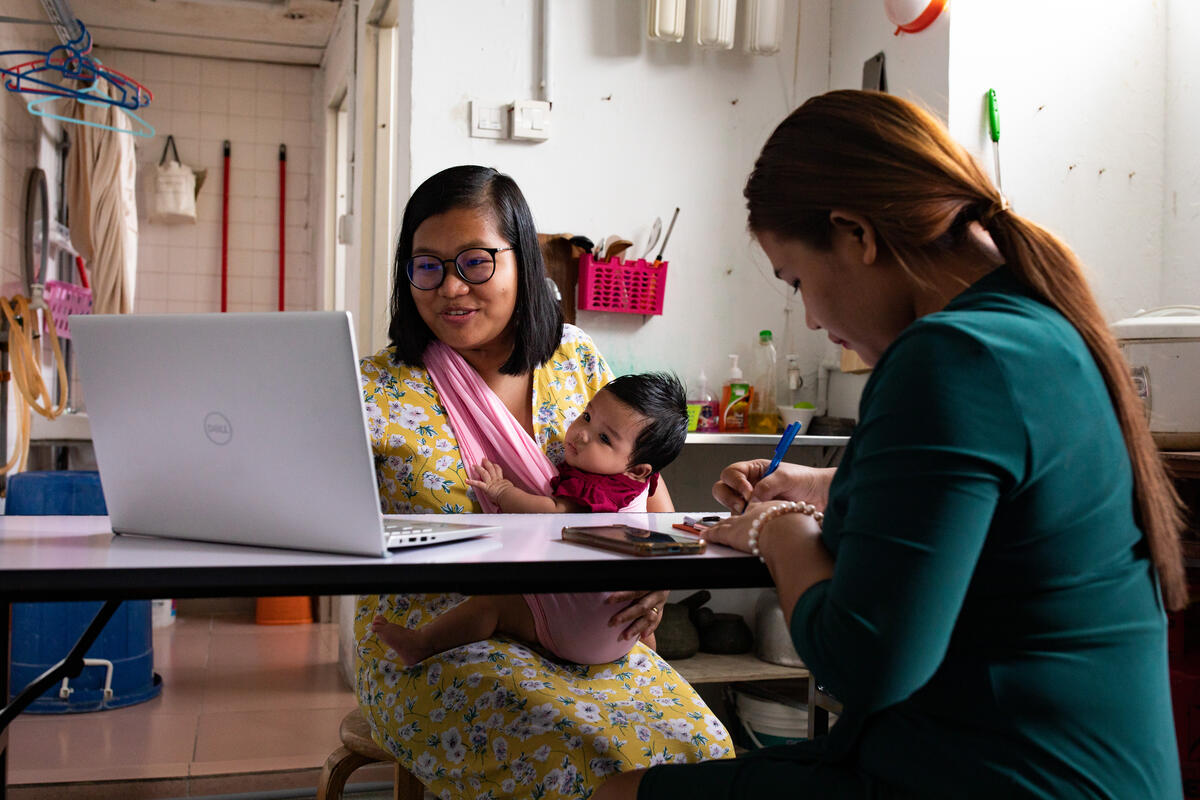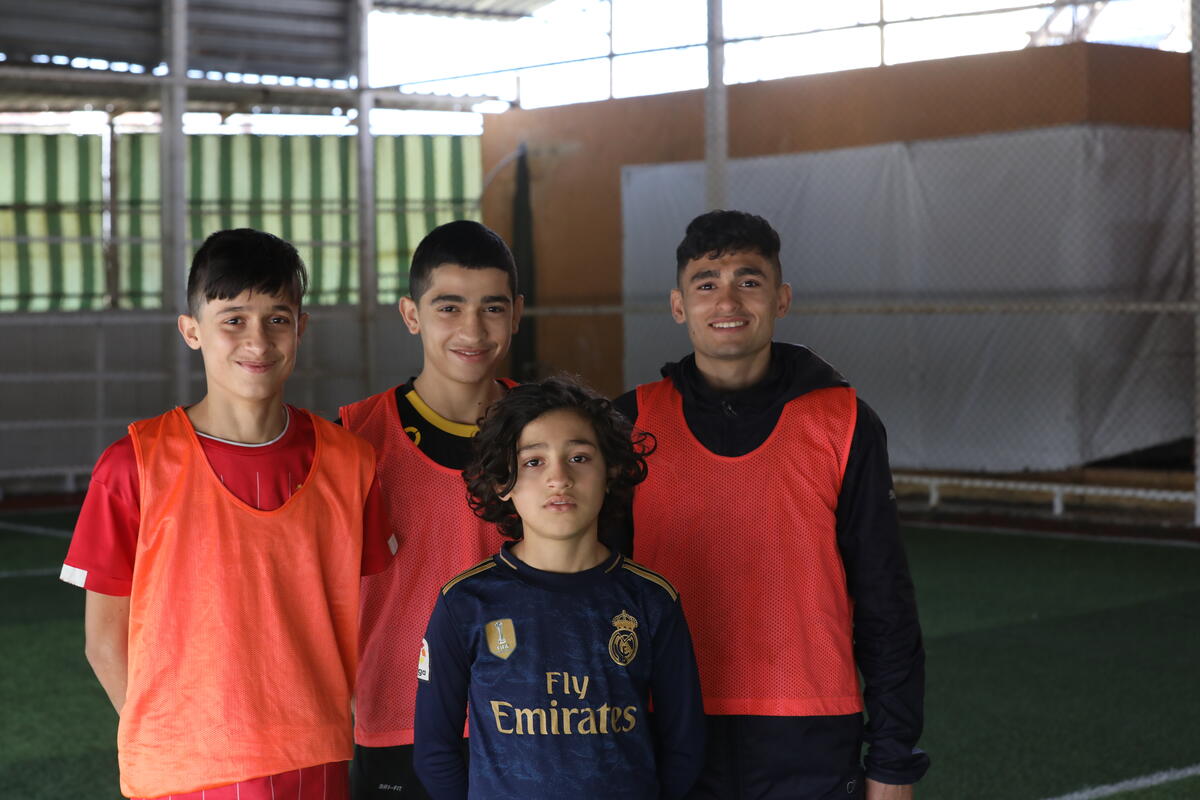World AIDS Day: Refugees in Brazil use drama to catch the conscience
World AIDS Day: Refugees in Brazil use drama to catch the conscience

RIO DE JANEIRO, Brazil, December 1 (UNHCR) - Refugees from a deprived area of the coastal Brazilian metropolis of Rio de Janeiro are using drama and comedy to open a debate on difficult social subjects such as HIV/AIDS and sexual and gender-based violence.
On a recent evening, UNHCR joined an audience of about 100 refugees of different nationalities at a presentation of "O Auto da Maré Alta" in the grounds of Caritas of the Archdiocese of Rio de Janeiro. UNHCR and local non-governmental organization Ação Comunitaria provided funding for the show.
The play was created, directed and staged by a group of young amateur actors and actresses living in the Maré Complex, one of the city's biggest slum areas. But, although it deals with weighty issues, the drama uses humour to engage people who have suffered enough tragedy and sadness.
It tells the story of a young bon vivant who dates the daughter of an over-protective shopkeeper while secretly visiting the red-light district and going to samba shows. The situation heats up when the angry father finds out what is going on. It boils over when a doctor who collects blood samples from people in the red-light district reveals that some of the dancers, as well as the pleasure-seeker, are HIV positive.
Local religious and community leaders get involved in the ensuing heated debate, which, however, has a positive ending. The physician refers all those living with HIV to a public health clinic for treatment and explains the preventive measures that should be taken to avoid HIV/AIDS. And then the father gives his blessing to the relationship between his daughter and her wayward boyfriend, who promises never to attend another samba show.
The presentation certainly struck a chord with the audience, who took on board the key messages while enjoying the humour. But to drive home the point, a UN leaflet, "Women's rights: Violence and HIV/AIDS Prevention," was distributed. It included contact numbers that people could call to ask about testing for HIV or to report cases of violence against women.
"The actors presented very important issues that we need to be aware of," said Diana, a teenager from the Democratic Republic of the Congo. She left her home in the Great Lakes region to escape conflict and flew two year ago to Brazil, where she lives alone. The 18-year-old and her friends enjoyed the mix of gravity and comedy, smiling knowingly when the play touched on taboo issues such as sex.
Rodrigo, a Colombian refugee sitting next to her, said the play reinforced the message of safe sex. "I adored the dancers," added the 20-year-old, who sought refuge in Brazil a year ago to escape persecution against his family by an irregular armed group in a central region of the country.
The initiative is part of UNHCR's health assistance framework for urban settings, which is aimed at establishing effective communication mechanisms to improve access to priority primary health care services and to improve the health of refugees and other people of concern.
"When you get adolescents involved in this kind of initiative, they spread all the messages, all the information, presented by the play," Ação Comunitaria's Vicente Pereira stressed. "It was an important cultural event for the refugees and an opportunity to learn about HIV/AIDS prevention in a fun way," added Heloisa Nunes, director of the project.
Brazil hosts around 4,500 refugees from more than 75 nationalities. All are entitled to free treatment under public health policies, including those covering HIV/AIDS prevention and care.
"We engage with a wide range of actors to promote shared responsibility, and to guarantee quality health services [including HIV/AIDS prevention and treatment] at a level similar to that of nationals," Andrés Ramirez, UNHCR's representative in Brazil, explained.
By Luiz Fernando Godinho in Rio de Janeiro, Brazil








